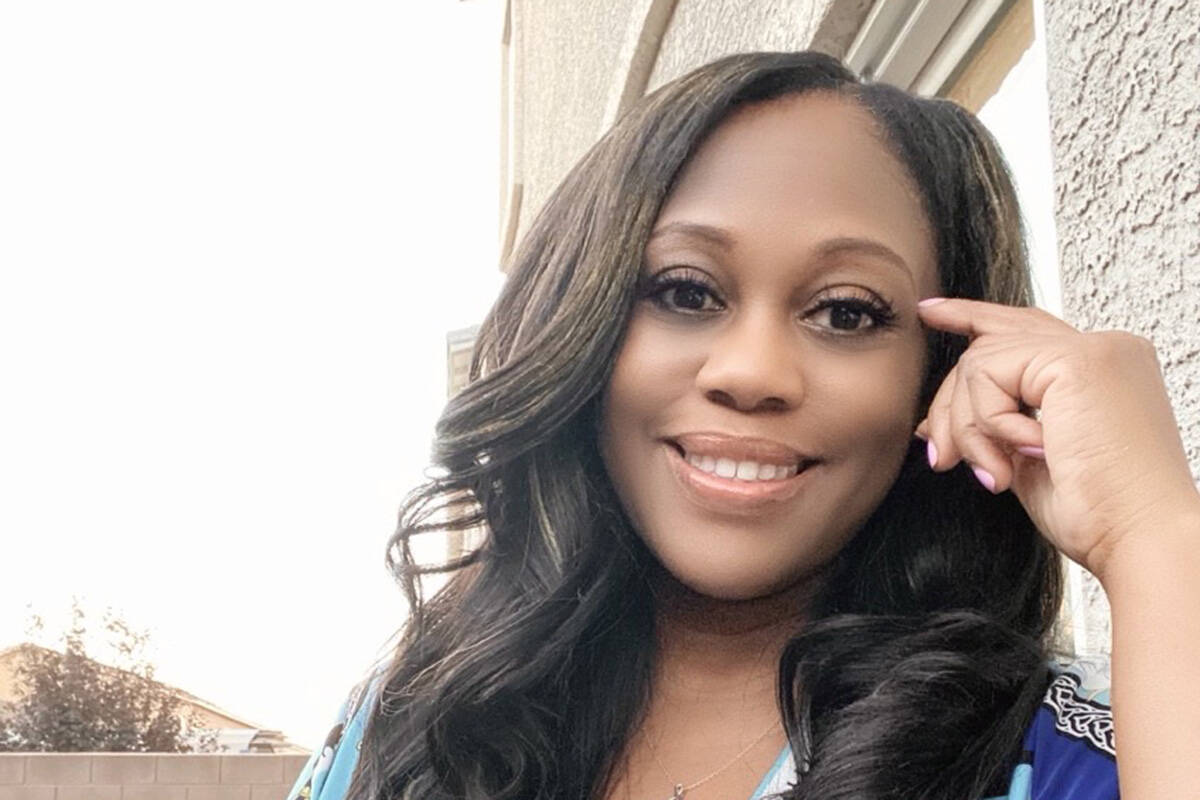‘Mental health is health’: Las Vegas therapist works to decrease stigma in seeking help

During her two decades working in Las Vegas, Sherita Childress has witnessed the Black community embrace mental health care.
Childress, a licensed clinical social worker and therapist, said that is a welcome change after a history of disenfranchisement left African Americans wary of seeking mental health resources.
“The head is not separate from the body,” Childress said. “They need to know that. It needs to be normalized, and that message needs to be loud.”
Born and raised locally, Childress has dubbed herself “Vegas Therapist” because of her family’s deep ties to the area. Her family moved to Las Vegas from the South in the 1950s. Her grandparents worked various jobs including at hotels and at the Nevada Test Site.
“They always instilled in us to get an education and to do more than they were able to do with their opportunities,” Childress said.
Childress has worked with children in foster care, provided therapy for local business employees and in December responded to UNLV to provide care to students, staff and police after the shooting. Childress worked at St. Jude’s Ranch for Children and SafeNest as the clinical director at both organizations.
Sheldon Jacobs, a licensed marriage and family therapist in Las Vegas, is on the board of directors for the National Alliance on Mental Illness.
Jacobs has known Childress for about 10 years and said she is able to normalize the conversation around mental health that lessens the stigma people have about getting help.
“From day one, Sherita has always been passionate about using her expertise, knowledge and various skill sets to empower the Black community through awareness via a multitude of platforms,” Jacobs wrote in an email. “She understands the importance of spreading mental health literacy so that individuals can make more informed decisions about treatment and supportive services.”
Along with a private practice and her work in the community, Childress uses social media to educate people in a fun way about the importance of mental health.
“They don’t have to be ashamed. They don’t have to be embarrassed,” Childress said. “In our community, in the African American community, it is healthy. Mental health is health. It’s a healthy component to learn about your mental health, take care of your mental health and get the resources that are available in our community.”
Childress said she wants to reverse a stigma developed in the Black community over decades that personal issues stayed within the family instead of being shared.
Childress is a member of Nehemiah Ministries, a church near Gowan Road and Rancho Drive.
“Nowhere in the Bible do we find it a sin to need help. We have never been steered away from requesting help,” the Rev. Kelcey West said. “That’s what makes the stigma against seeking help for mental health such a crime.”
Childress serves her church by providing a mental health ministry to her fellow members.
“I wish every pastor had a Sherita in his or her congregation,” West said. “Having a Sherita in our congregations would help make our congregations healthier.”
West sits on the board for local organizations including 100 Black Men of Las Vegas, the Salvation Army and the Urban Chamber of Commerce.
He said the toll of stress of his responsibilities “got the best of him,” leading him to seek help.
“It feels good to feel good. To not be angry on the job,” West said. “To not have my mind clouded. It feels good to be able to be creative and free in my mind.”
Contact David Wilson at dwilson@reviewjournal.com.